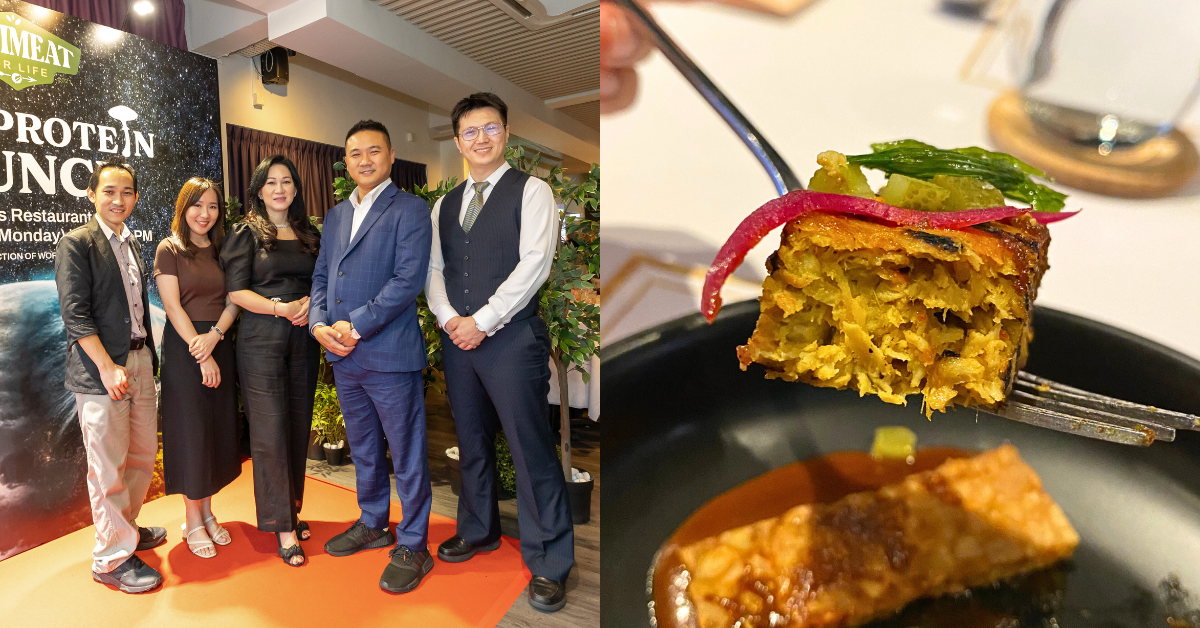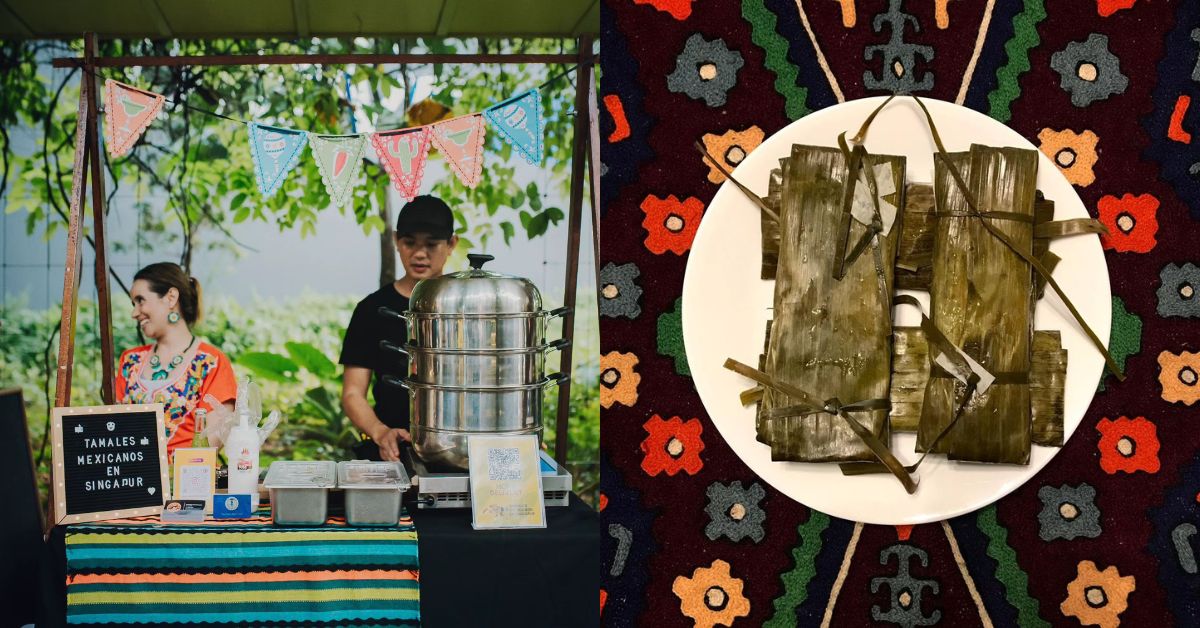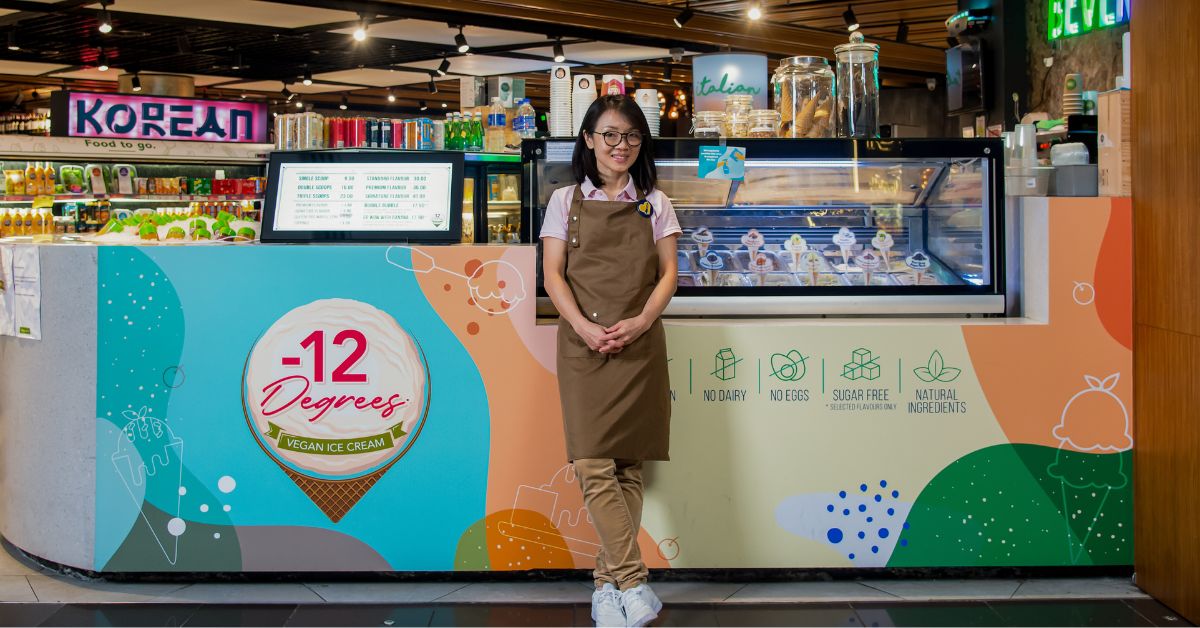As a self-professed Japanese food lover, it might come as a surprise that I don’t eat sashimi, or any form of uncooked fish.
Usually the prized plate during conveyor belt sushi buffets and the bit everyone saves for last in their donburi, I simply couldn’t bring myself to enjoy the pink slabs of raw fish all my friends raved about.
Perhaps it’s because I tried sashimi in the wrong places, and the restaurants I went to weren’t the stickler for freshness.
When poké bowls came to town, I quickly found out that the cubes of salmon and tuna were heavily-marinated, and I deduced that the savoury sauce would mask the fishy aftertaste…I was wrong.
My first poké bowl, from a store I shall not name, reacquainted me with my gag reflex, and I had to pass the remaining half of the bowl to my colleague.
So, when I received an invitation to the anniversary dinner celebration of Aloha Poké, a local poké chain, I was honestly a bit worried that I might end up rejecting the food that they were going to offer.
Upon reaching the cosy media session with co-founder John Chen (38), food quickly appeared on the table, the first of which were samplers of their poké – their signature spicy salmon, and mentaiko salmon, their seasonal special.

Bracing myself for the taste of the sea, I was instead treated to mouthful after mouthful of well-seasoned fish – sans any hint of fishy aftertaste.
Just like someone going through a bunch of shitty relationships and finally finding the right one, I felt that I finally found the joy that came with eating raw fish that everyone raved about.
I was a convert.
But this article isn’t about my newfound love for poké and raw fish – it’s about the brains behind this life-changing experience – 2 pairs of couples that are running the ever-expanding Aloha Poké chain.
And the most amazing part about all of this?
They’re all still working full-time in the banking industry.
The Fateful Holiday
For the regular Singaporean, going overseas for a holiday usually means checking off a list of places and foods to eat.
It was the same case for the 4 founders, made up of 2 married couples – John Chen (38) and Lee Yue Xian (35), Paladin Hsu (38) and Selene Ong (35) – who were vacationing in Hawaii.
But it wasn’t in some hip joint or famous Michelin-starred restaurant that they first tried poké – it was in a supermarket called Foodland.

Calling the experience “love at first taste”, they spent the rest of their vacation seeking out the best poké joints in and around Oahu.
Upon their return to Singapore, they tried to find suitable alternatives – but to no avail.
This was when they started experimenting with poké flavours in their own kitchen based on the fond memories of their time in Hawaii. They also made poké for each other, their family and their friends, until they believed they got the balance of flavours just right.
Not satisfied with simply sharing the wonders of poké with loved ones, they decided to start a restaurant, and opened their very first Aloha Poké outlet along Amoy Street in August 2015.

Given that they were themselves still holding their full-time jobs, they hired Michael Yonathan, a trained sushi chef formerly of B @ Rochester and Capella, to helm the kitchen and scale (pun not intended) the operation.

Today, Michael is the Corporate Chef at Aloha Poké and oversees all of its operations.
Early Challenges
But getting to where they are now wasn’t at all smooth-sailing.
None of the prominent landlords were willing to rent to them a space, especially since they were first time F&B entrepreneurs.
In fact, they were even willing to overpay in rent just to get a foot in the door.
Eventually, the founders found a shophouse lot in Amoy Street at a decent rental price, and soon proved all their doubters wrong.

With 6 bustling outlets open currently, they have plans to open another 4 by the end of the year.
At the moment, all their outlets are located in the CBD, and I asked them (with much hope) if they’re planning to open outlets in the heartlands.
To be realistic, Aloha Poké’s target customers will always be within the CBD and in town. For the moment, the chain will look to expand within this area, making it more convenient for diners to have a quick meal.
Nevertheless, they do not rule out the possibility that they might start a new concept, specifically targeted at the heartland malls – for example, burrito-style ‘Pokérittos’ – which they have already been selling at their CityLink Mall outlet.

The ambitious founders are also looking into expanding overseas, with a Hong Kong outlet slated for opening by end of this year.
“While the F&B scene in Singapore is extremely vibrant, the consumer population is still small. For expansion beyond 12 outlets, Aloha Poké will need to look overseas particularly in the region. The demographic of the Hong Kong consumer is very similar to that of Singapore, and with a similar Commonwealth legal system, Hong Kong is the ideal option for Aloha Poke’s first international outlet.”
“Next on the cards will be Perth, Australia!”
Selling 2 Bowls A Minute

Singaporeans are no strangers to poké bowls these days, thanks to the emergence of various restaurants serving them up to health-conscious office workers.
This familiarity has led to very impressive figures garnered by Aloha Poké’s 6 outlets.
Based on current statistics, each outlet can expect to sell an average of up to 30kg of fish and an average of two poké bowls per minute during the busy two-hour lunch window per day.
Each outlet generates between $60K to $100K per month, and at the current rate, it is on track to deliver $3.8M in revenue and an EBITDA (earnings before interest, taxes, and amortisation) of $750K this year.
With thousands of bowls sold to date, have they noticed any trends among their fans?
“The taste for poké transcends all ages – [we have] regular customers from office workers in CBD, students from universities and polytechnics, as well as retirees in their 60s.”

But what do they think is the secret to their longevity, given the very competitive nature of the local F&B scene?
Other than their first mover advantage in a food trend, their dedication to making the ordering process as swift as possible was also cited as their key to success.
“Despite having long queues, staff are trained and committed to preparing each lunch bowl within 5 minutes – from when the order is made and paid for to collection point – to get the queues moving swiftly.
We understand that lunch hour is precious!
Running A Full-Time Business Alongside Full-Time Jobs

With all 4 of them still working full-time in the banking industry, I wondered how they manage to handle their workloads alongside their chain.
Everyone is busy and only has 24 hours, how they allocate and plan their time is key. Naturally, some sacrifices need to be made.
Attributing their success to effective time management, delegation, and synergies in their partnership, they’re also big believers of empowering staff and grooming them to handle bigger projects.
For example, one of their staff, Goh Ling Lee, started just as a waitress and worked her way up to the chain’s Group Operations Manager – all within a span of less than 2 years.
There are now plans for her to go to Hong Kong to spearhead the company’s overseas expansion.

Among the 4 founders, they’ve also divided and conquered various aspects of the business – all according to their unique skill-sets.
“Each partner is responsible for a specific subset of the business, they will debate, even argue, on all important matters but will ultimately defer to the decision of partner-in-charge of that area.”
The founders also left some valuable advice for aspiring F&B entrepreneurs:
Consider carefully the risk, make sure you work out your numbers and contingency plans. Most importantly, find good partners.
Aloha Poké is turning a food trend into something more permanent, and I’m definitely looking forward to seeing more of its outlets around Singapore (somewhere in the heartlands soon, please!).








